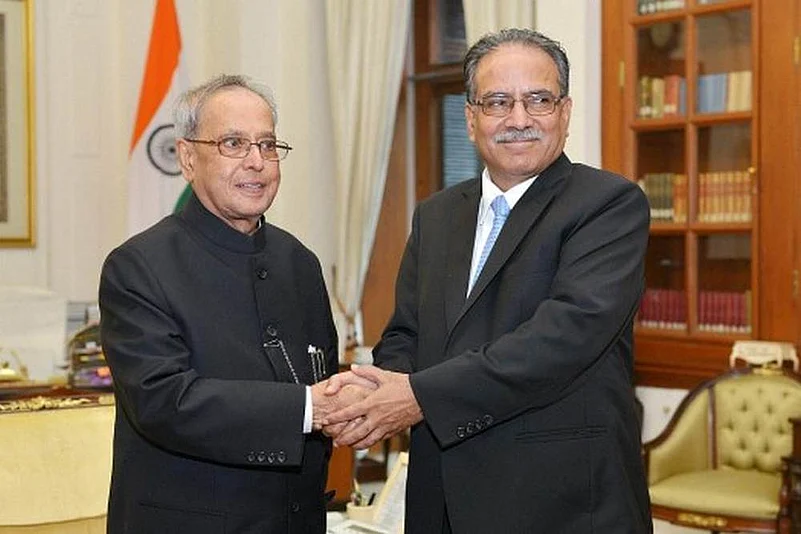State visits by Indian Presidents to a foreign land are normally to jazz up bilateral relations without much political substance. The political part is usually brought in during a Prime Minister’s visit to the country.
How should then Pranab Mukherjee’s three-day visit to Nepal, beginning November 2, be seen?
Considered as one of the most experienced politicians of India, President Mukherjee’s three-day state visit to Nepal has evoked much hope and excitement in both the countries.
Before becoming the first citizen, Mukherjee had held several key positions in the government and earned the reputation as a consensus-builder during tricky negotiations. In Nepal, he is seen as one of the key initiators of the 12-point agreement that brought Maoists and other political parties to the negotiating table that ended the decade-long insurgency in 2006.
Advertisement
Mukherjee’s engagements in Nepal are aimed at highlighting a bipartisan support in India for strong ties with Nepal. Former Indian foreign secretary Shyam Saran, who too had played an important role in the 12-point agreement, is also likely to be part of the presidential delegation.
There is a lot of speculation, therefore, on whether the Indian President’s visit will also help break the political deadlock in Nepal on the Madhesi issue. Differences among major political parties had put off the decision to move the crucial amendment to Nepal’s constitution to address the Madhesi issue and make them ‘full citizens’ of the country.
This contentious issue had brought serious strains in Indo-Nepal relations, resulting in a violent phase of agitations in Nepal’s Terai region last year.
Advertisement
In the past few months, however, attempts have been made by both sides to iron out differences and put bilateral ties back on the track.
During his visit, the President is scheduled to meet a cross-section of the Nepalese political leadership and also visit Lumbini, Janakpur, Pokhara and Dhulikhel besides, capital Kathmandu.
It not only ties up the strong religious and cultural bonds between the two countries but also brings the Madhesis to the forefront and highlights their role in keeping the neighbours in close partnership.
There is expectation, therefore, that his visit and discussions in Nepal will be able to bring the various stakeholders together and pave the way for reconciliation among the people of the Terai and the hills.
But foreign ministry officials also throw in a line of caution. They argue that despite the President’s role as an ‘elder statesman’ success of the constitutional amendment will depend largely on how key political groups in Nepal behave and work out intra-party and inter-party relations.
The last Indian President to visit Nepal was K.R. Narayanan in 1997. President Mukherjee’s state visit to Nepal, almost after two decades, is significant as it also indicates the current upswing in their bilateral ties.
Nepalese Prime Minister Pushpa Kamal Dahal “Prachanda” has already visited India twice in the past two months and there have been regular high-level contact between the two sides.
But the Indian President’s visit to Nepal comes at a time when a lot of realignment is also taking place among the major political players in the country – mainly over the proposed impeachment motion against the chief of the anti-graft constitutional body, Lokman Singh Karki.
Advertisement
A former chief secretary and royalist, Karki’s investigations in the past months, though hailed by sections in Nepal, had also been controversial. The main political opposition in parliament, the Communist Party of Nepal (United-Marxist-Leninist) has come together with Maoist PM Prachanda and his main backer, the Nepali Congress, to impeach Karki.
The Madhesi parties fear this as an attempt to sidetrack the much-needed amendment to the Nepalese constitution. But the fact that erstwhile rivals have now joined force to move the impeachment against Karki has generated hope that such cooperation may be found also to amend the constitution.



















